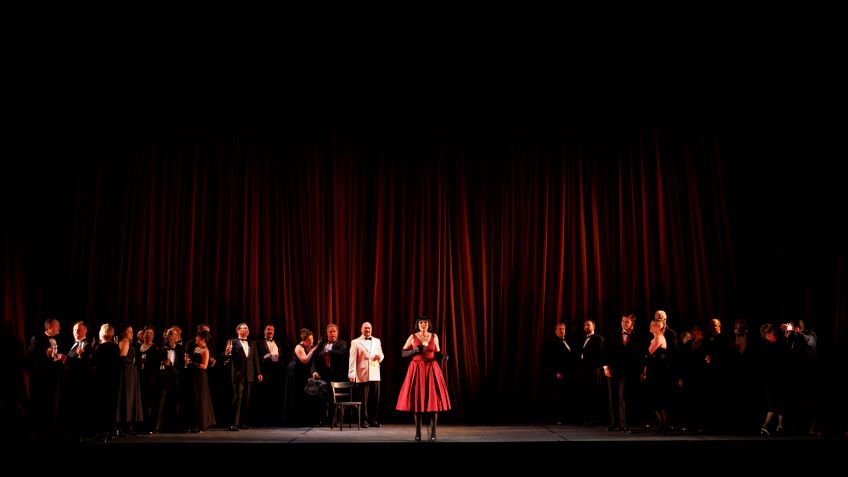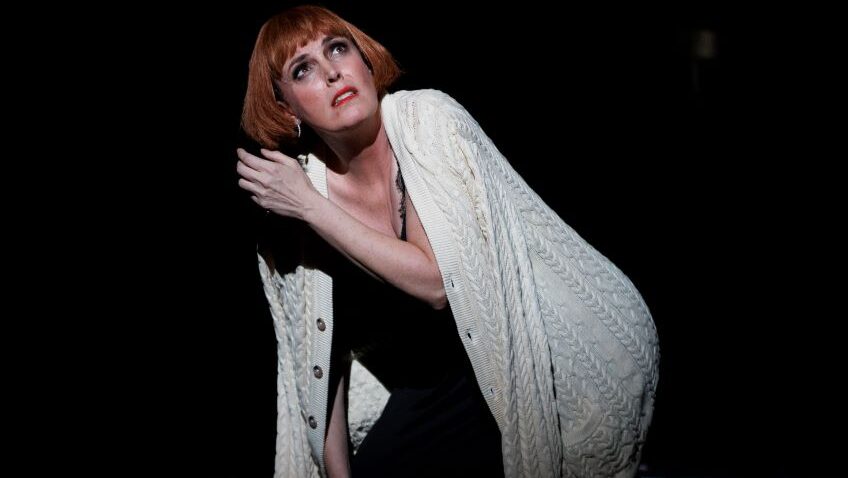The orchestra joined the singers on stage in the curtain call for a united front. The audience made it abundantly clear they were on ENO’s side. Like everybody else I am shocked by the possibility of ENO’s demise in London.
I only wish I could say I had enjoyed Peter Konwotschny’s radical production. Traviata, he says, is not a love story, but the story of a woman who discovers she is dying and refuses to accept the fact.
Verdi’s popular tearjerker has been cut and is acted without interval. The focus is on Violetta and Alfredo who are portrayed as having little in common. What does she see in her young lover who is depicted as a socially awkward bookworm?
The staging is without romantic glamour. There is a chair and a pile of books; and that is it. The singers are dwarfed by huge red curtains which are opened to reveal more curtains. It feels dark and empty. The storyline, updated to the 1950s, is not any the clearer and it certainly is less emotionally involving.

Verdi, looking for something which was novel, beautiful, grand, varied and daring in 1853 chose Alexandre Dumas fils 1848 novel which was adapted into a play, La Dame aux Camélias (The Lady of the Camelias) which had had a succès de scandale on stage in 1852.
The public was shocked by its modernity. The heroine was based on the notorious courtesan Marie Duplessis, mistress to a number of prominent and wealthy men, who had died of tuberculosis aged 23 in 1847.
Nicole Chevalier gives a powerful performance of a woman scorned by a cruel, mocking society. She comes across as a hard-edged Brechtian prostitute rather than as the familiar witty, charming and much-loved French courtesan, the toast of Paris. She dies all alone
Jose Simerilla Romaro as Alfredo has on occasions to sing from the auditorium which is so artificial it doesn’t help his performance at all.
Roland Wood as Alfredo’s father is a more recognisable character. The surprise is that when he calls on Violetta, he brings along his young daughter, far too young for him to be worrying about her marriage prospects being ruined by her brother’s sexual behaviour.
My enjoyment, much curtailed by Peter Konwotschny’s production, came from the orchestra, conducted by Richard Farnes, and the singing of leads and chorus.
To learn more about Robert Tanitch and his reviews, click here to go to his website. 




